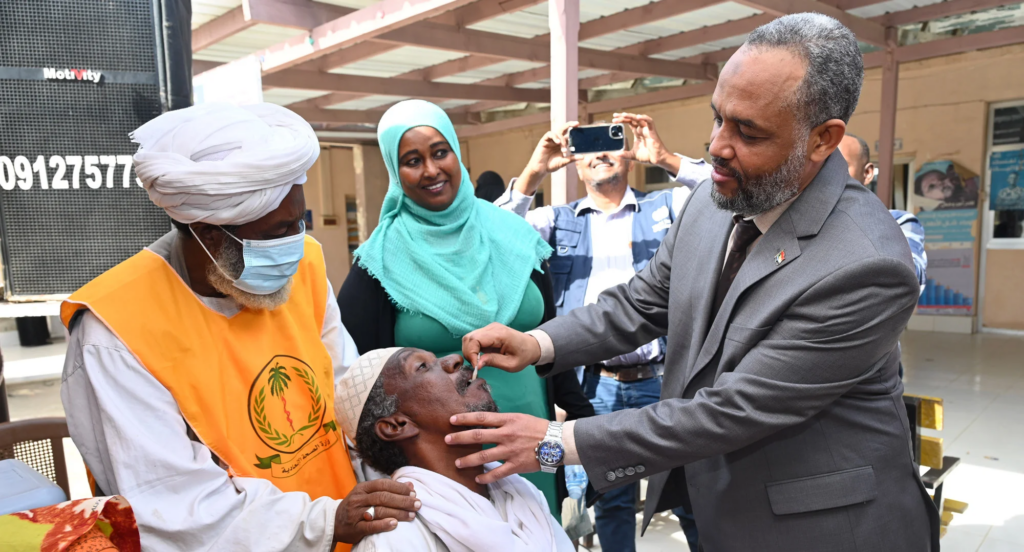
Dr. Heitham Mohammed Ibrahim Awadalla, Director of Sudan’s Federal Ministry of Health, found himself in the midst of chaos when civil war erupted between the Rapid Support Forces and the Sudanese army on April 15, 2023. The fighting led to widespread destruction, displacing millions and severely impacting the country’s already fragile health system. Despite the overwhelming challenges, Dr. Awadalla and his team at the Ministry of Health remained committed to protecting public health.
In the face of shortages, damaged infrastructure, and a depleted workforce, the ministry focused on four key priorities: organizing governance and leadership, securing health care financing, replenishing the health workforce, and assuring the supply chain. Through partnerships with international organizations and community-based groups, they managed to maintain essential services, such as vaccinations, and support the ongoing fight against diseases like malaria, HIV, and tuberculosis.

As the war continued, the ministry adapted to the changing needs of the population, realigning services to accommodate the influx of displaced people in certain states. They also worked to reestablish the flow of public health information, crucial for detecting and managing disease outbreaks. Dr. Awadalla and his team set ambitious goals for 2024, aiming to restore partial functionality to 75% of the country’s hospitals and address the growing issue of malnutrition among children.
Despite the harrowing personal and professional challenges, Dr. Awadalla remains proud of the resilience and dedication shown by the ministry staff and public health corps. Their commitment to saving lives has kept the health system functioning. Through his experiences, Dr. Awadalla encourages others facing similar situations to trust themselves, their colleagues, and the mission of public health, never giving up hope in the face of adversity.
Read the full article by Dr. Awadalla in Harvard Public Health.
